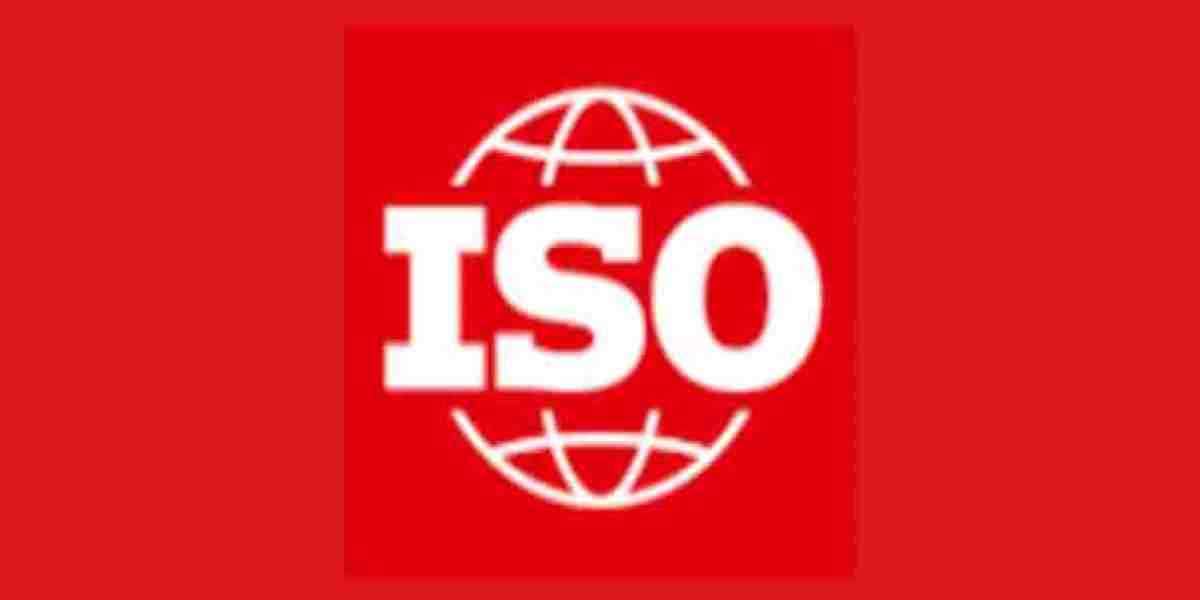If you’ve ever wondered what separates successful organizations from the ones that struggle to thrive, one of the biggest factors is their commitment to ISO standards. ISO certification isn’t just about ticking a box for compliance; it’s about building a culture of quality, trust, and accountability. Whether you’re dealing with customers and partners, managing your general staff, or running a small or medium-sized enterprise (SME), ISO training is more than a requirement—it's a gateway to smoother operations, stronger relationships, and a better reputation.
But what does it all mean for different players in your organization? Let’s break it down. In this article, we’ll explore how ISO training impacts customers, partners, general staff, and SMEs and why it's crucial for everyone involved.
ISO Training: What’s It All About?
ISO training equips individuals and organizations with the skills and knowledge needed to implement, maintain, and improve ISO standards in day-to-day operations. These standards cover a variety of areas, including quality management, environmental practices, and information security. For most businesses, ISO training starts with ISO 9001 (quality management) or ISO 27001 (information security), but there are many other standards out there that can help your organization operate more efficiently, sustainably, and securely.
The thing is, ISO isn’t a one-size-fits-all solution. Depending on your role—whether you're a customer, partner, staff member, or running an SME—the way ISO affects you will be different. But one thing remains the same: it helps create a structured, efficient environment that drives trust and transparency. And in today’s fast-paced, highly competitive world, who doesn’t need a little more of that?
Let’s break down how ISO training benefits different groups.
Customers: Building Trust, One Standard at a Time
Your customers want assurance that the products and services they’re buying from you are top-notch. They want to know that the company they’re giving their hard-earned money to is reliable, trustworthy, and committed to maintaining the highest standards. And if you can prove this through ISO certification? That’s a massive win.
ISO certification, especially when it’s clearly communicated to your customers, shows them that you’re committed to maintaining quality standards. But beyond the initial “wow, they’re ISO-certified,” the certification process itself drives your organization to constantly improve its practices.
You know what? It’s not just about having a fancy certificate hanging on the wall. It's about ensuring consistency in your products and services. ISO helps streamline your operations, reduce errors, and deliver a better overall customer experience. When customers know that an organization adheres to internationally recognized standards, it builds trust. And trust? That’s everything. In fact, many customers actively look for ISO certifications when choosing vendors.
For example, imagine you’re in a highly competitive market like manufacturing. Having ISO 9001 certification could be the deciding factor when a potential client is choosing between you and a competitor. They might not even know the technical details of the certification, but they’ll understand that it’s a promise of quality and consistency.
Partners: Strengthening Your Business Relationships
Now, let’s talk about partners. Building strong, long-lasting partnerships requires trust, and ISO certification provides just that. When you and your partners are on the same page about quality standards, it reduces confusion, improves communication, and streamlines collaboration.
iso training for your team ensures that everyone understands the importance of compliance, not just internally, but also in terms of how you interact with partners. Whether you're working with suppliers, third-party vendors, or external contractors, ISO-certified organizations typically have stricter guidelines in place for managing processes, which means fewer mistakes, fewer misunderstandings, and more efficient operations.
For instance, if you’re an e-commerce business, you might rely on logistics and shipping companies to handle your deliveries. By working with an ISO-certified shipping partner, you know they adhere to certain quality and safety standards that are critical to your business. And when your entire supply chain is ISO-certified, it creates a smooth, reliable process from start to finish. This makes your operations more predictable and reliable for everyone involved.
The benefits aren’t one-sided either. Your partners will also appreciate your commitment to quality and security, knowing they’re dealing with a reliable, forward-thinking company. This strengthens the relationship and often leads to more opportunities for growth.
General Staff in Certified Organizations: Boosting Engagement and Efficiency
For the people who make your organization tick—the staff—ISO training isn’t just about following a checklist of requirements. It’s about creating a work culture that values quality, efficiency, and continuous improvement.
When employees understand ISO standards and are trained to implement them, they’re empowered to contribute to the overall success of the business. ISO training helps staff at all levels understand the importance of their role in maintaining and improving quality, safety, and efficiency.
Think about it this way: When employees have the proper training, they’re more likely to make decisions that align with organizational goals. They’ll understand how their actions affect the bigger picture. And this isn’t just good for the company—it’s good for them too. Employees who see the value in their work are more engaged, motivated, and likely to take pride in what they do. When everyone in the organization is trained and knowledgeable about ISO, it fosters a sense of teamwork and shared responsibility.
Moreover, ISO training doesn’t just improve operations—it boosts morale. Employees appreciate clear systems and processes that help reduce ambiguity. And when they see that their organization is actively investing in their development through training, it fosters a sense of loyalty and respect. Everyone knows their contribution matters, and that makes a big difference.
Small Medium Enterprises (SMEs): The Key to Growth and Sustainability
SMEs are the backbone of many economies, but they often face unique challenges. Limited resources, budget constraints, and the pressure to stay competitive can make it hard to prioritize things like quality management and compliance. This is where ISO certification can level the playing field.
For SMEs, ISO certification is a game-changer. It’s not just about checking a box for compliance—it’s about operational efficiency, growth, and building a scalable business. ISO training can help smaller organizations implement quality management systems, improve risk management, and reduce operational inefficiencies. This leads to better products, fewer errors, and a more satisfied customer base.
Moreover, many large organizations—especially those in highly regulated industries—prefer working with ISO-certified suppliers. As a small or medium enterprise, obtaining ISO certification opens up new doors for business partnerships and contracts with larger companies. Certification can also improve access to new markets or boost your brand’s credibility.
In the end, ISO training for SMEs is an investment in long-term success. It helps streamline operations, build stronger relationships with customers and partners, and provides a framework for continuous improvement.
Why ISO Training Should Matter to You
Whether you're a customer, partner, staff member, or part of a small or medium-sized business, ISO training is a cornerstone of success. It’s not just about formal processes or compliance—it's about creating a culture of excellence, efficiency, and trust.
And for SMEs, ISO certification isn’t just about managing risks—it’s about unlocking growth, opening doors to new opportunities, and establishing a reputation as a reliable, trustworthy organization.
So, the next time someone mentions ISO training, don’t think of it as just another piece of corporate jargon. Think of it as an investment in your organization’s future. It’s about creating a foundation of trust, accountability, and continuous improvement—values that will carry your business forward in today’s competitive landscape.








